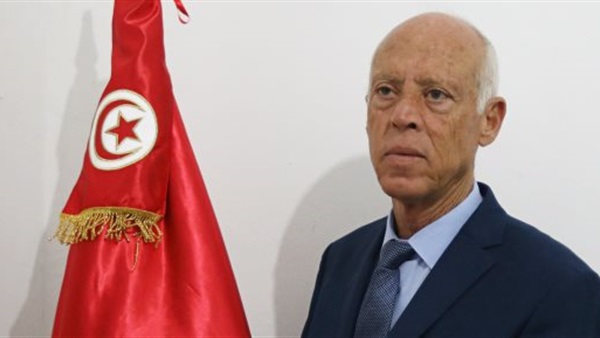Tunisian justice: Slowdown that serves Ennahda and puts president in crosshairs

Amid the widening wave of criticism
against Tunisian President Kais Saied by his supporters against the backdrop of
the slowdown in the reform movement initiated by Tunisia since July 25, 2021,
the Tunisian president took a decision to dissolve the Supreme Judicial
Council, which is concerned with ensuring the independence of the judiciary and
is based on monitoring the progress of the work of judges.
Resentful statements
Saied preceded this decision with a
series of resentful statements, which he called “the slow course of justice in
important files” that remained on the shelves for many years. Since the
president announced his decisions on July 25, according to which he froze the
parliament, Tunisians have placed hopes on Saied to open the files of the
silent corruption and resolve the files that the Tunisian street has long
talked about, including political assassinations and financial and
administrative corruption.
No movement
After more than six months passed
without any movement in these files, voices began to rise to attack Saied,
which translated directly to the dissolution of the Supreme Judicial Council.
With this decision, Tunisia is
awaiting urgent moves in files such as the killing of leftist Tunisian
politicians Chokri Belaid and Mohamed Brahmi, whose defense committee confirms
the involvement of the Ennahda movement in their killing. The judiciary is
accused of covering up for Ennahda and disrupting the course of the case.
At the same time, it is expected to
move seriously in the file of the mysterious death of Tunisian police officer
Mohsen al-Adili, who was found hanging by a rope in his house, which those
close to Adili consider to be an assassination, not a suicide, and they accused
Ennahda.
Secret behind
slowdown
Tunisian political writer Nizar
Al-Jledi told the Reference that the Ennahda movement has succeeded over the
past ten years in creating a presence in the various Tunisian administrations.
It is not excluded that the movement is behind the slow progress of the files
threatening it.
Jledi described the Tunisian
administration's move in the Adili file as less than average, hoping that the
state would move according to the event, in which it appears to be a
quasi-political assassination.
What awaits
Ennahda?
The Ennahda movement is the party
most affected by the decision to dissolve the Supreme Judicial Council, as the
movement has several files, all of which lead to the dissolution and imprisonment
of its leaders.
In addition to the file of political
assassinations, the issue of deporting Tunisians to conflict sites is to be
resolved. If these accusations are true, Ennahda will be primarily responsible
for Tunisia's advent on the list of countries exporting terrorists during the
last ten years, which may necessitate its dissolution.
At the same time, Ennahda faces
accusations of receiving foreign funds during the last legislative elections in
2019, and the movement has several suspicious relations with regional and
non-regional countries linked to the Brotherhood.
Opponents of Ennahda consider that
the movement is working in Tunisia in favor of Brotherhood goals and not out of
Tunisian nationalism. They cite its position in support of the armed militias
that controlled the Libyan capital until recently, which showed Tunisia as a
country on the side of terrorism and extremist groups.





